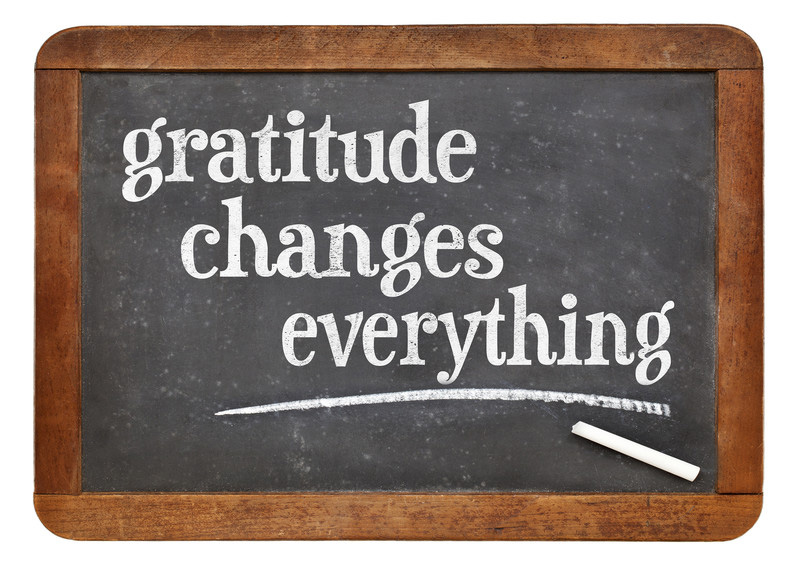
Turns out that the practice of gratitude does more than just make us feel better in the moment. Practicing gratitude actually changes your brain. It has long been established yet not a stretch to understand that gratitude will make you feel better but there have been many studies that support and outline the ways in which the brain changes. The Mindfulness Awareness Research Center at UCLA conducted studies that show that when you regularly express gratitude it literally changes the molecular structure of the brain, keeping the gray matter functioning at a higher level and as a result makes us feel happier and healthier. It turns out that when you are happy it affects your central nervous system enabling you to feel more peaceful, less reactive and less resistant.
There are many ways in which people practice gratitude. One is the ever-popular nighttime gratitude journal in which you jot down 5 or more things you are grateful for before going to bed. I think this practice has great merit because it puts the emphasis on the positive before you go to bed and is more likely to produce a good nights sleep. It is also a good review of the day. If you are someone who finds writing before bed more of a chore than helpful I recommend that when you first close your eyes just start saying silently to yourself al the things you are grateful for. I find this method very effective not only from a gratitude perspective but it also slows my brain down and puts me in a positive space to start dreaming.
Another gratitiude practice is to make it a habit of telling one person a day something that you are grateful for or appreciate about them. This simple act makes the both of you feel happier and as a result affects the way we interact with all of those around us. People feel better when they know they are appreciated and valued.
So what about those particularly hard days when you are having difficulty finding gratitude in anything? For those days I recommend that you start simple by being grateful for the basics such as having running water, a toilet or being grateful that we don’t live in a bombed out city. When we need to be grateful the most we often loose sight of the fact that despite all of the issues that we have in our country we are still free and that is something to be cherished and extremely grateful for.
Lastly, make it a practice to tell your self one thing each day that you are grateful about yourself. It can be anything from something you have done well or something you like about yourself. Studies have shown that a regular practice of gratitude are associated with better sleep and lower levels of anxiety and depression which are compelling reasons to have a regular practice of gratitude.
No matter what methods you chose to express your gratitude I encourage you to begin to make it a daily habit. It literally can positively change the lens in which you view your life from. On a personal note I am extremely grateful to all of you for taking the time to read my newsletters.
With Gratitude,
Pat
